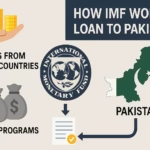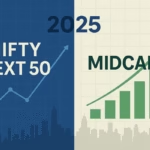Confused in Mutual Fund vs FD, Retirement brings freedom—but also the responsibility of managing your money wisely. In 2025, with interest rates on the rise and mutual funds gaining popularity, many retirees are wondering: Should I stick with Fixed Deposits (FDs), or explore Mutual Funds for better returns?
Let’s compare both options to help you make the right decision for a stress-free retirement.
Fixed Deposits (FDs): The Traditional Safe Haven
FDs are a long-trusted investment option among senior citizens. Here’s why:
- Guaranteed returns: Typically 6.75% to 7.25% in 2025, slightly higher for senior citizens.
- Low risk: Backed by banks, with up to ₹5 lakh insured by DICGC.
- Flexible tenure: Choose between 7 days to 10 years.
- Taxable interest: Interest is added to your income and taxed as per your slab.
Drawback: FDs often fail to beat inflation after taxes—especially for those in the 20% or 30% tax bracket.
Mutual Funds: A Balanced Approach
Mutual funds—especially debt mutual funds and balanced advantage funds—can offer better post-tax returns with limited risk.
Why consider mutual funds?
- Returns: 7%–9% on average (for conservative debt funds)
- Tax efficiency: If held for over 3 years, you get indexation benefits, reducing your tax liability.
- Liquidity: Withdraw anytime (except ELSS), and use Systematic Withdrawal Plans (SWPs) for monthly income.
- Diversification: Fund managers spread your money across multiple instruments, reducing concentration risk.
Risk Note: Debt funds carry interest rate and credit risk, so choosing high-quality funds is important.
Mutual Fund vs FD: Comparison Table (2025)
| Feature | Fixed Deposit | Debt Mutual Fund |
|---|---|---|
| Returns | 6.75% – 7.25% | 7% – 9% (avg.) |
| Risk | Very Low | Low to Moderate |
| Tax Treatment | Interest taxed as income | LTCG @ 20% with indexation (after 3 years) |
| Liquidity | Medium (break penalties) | High (except ELSS) |
| Regular Income | Yes (monthly interest) | Yes (via SWP) |
Tax Impact Example
Let’s say you invest ₹10 lakh for 3 years:
Fixed Deposit:
- Returns @ 7%: ₹2.1 lakh
- Tax @ 30%: ₹63,000
- Post-tax return: ₹1.47 lakh
Debt Mutual Fund (assuming 8% annual return):
- Returns: ₹2.59 lakh
- Indexed cost: ~₹10.8 lakh
- Taxable gain: ~₹1.79 lakh
- Tax @ 20%: ₹35,800
- Post-tax return: ₹2.23 lakh
Result: Mutual funds offer better post-tax returns, especially in higher tax slabs.
Systematic Withdrawal Plan (SWP): Smart Monthly Income
Mutual Funds allow retirees to withdraw a fixed amount every month using SWPs.
- You withdraw only capital gains (tax-efficient)
- Remaining capital keeps growing
- Better control and flexibility vs FD monthly payouts
Example: Invest ₹15 lakh in a debt fund, withdraw ₹12,000/month – capital may last over 12+ years depending on market performance.
Risks Retirees Should Watch Out For
| Type | FDs | Mutual Funds |
|---|---|---|
| Inflation Risk | High | Low |
| Market Risk | None | Low to moderate |
| Liquidity Risk | Moderate (penalty) | Low |
| Reinvestment Risk | High | Low (due to compounding) |
So, What Should You Choose?
- 100% Safety Needed? Stick with FDs (consider laddering to manage reinvestment risk).
- Looking for Inflation-Beating Returns? Blend FDs with debt mutual funds (e.g., 60:40 split).
- Want Regular Income? Use SWPs from mutual funds for monthly withdrawals with better tax efficiency.
Final Words
There’s no one-size-fits-all. Your decision should depend on:
- Your monthly income need
- Health expenses
- Risk appetite
- Tax bracket
- Existing savings
A hybrid strategy (part FD, part Mutual Fund) often works best for most retirees.
Want to see how much monthly income you can generate from mutual funds? Try our free SIP Calculator.
Have questions? Drop a comment below or consult a SEBI-registered advisor.
📢 Disclaimer: “Money Advisor is operated by a SEBI-registered Mutual Fund Distributor (ARN-129675). The content on this blog is for informational purposes only and should not be considered as investment advice. Mutual Fund investments are subject to market risks. Please read all scheme-related documents carefully.”




